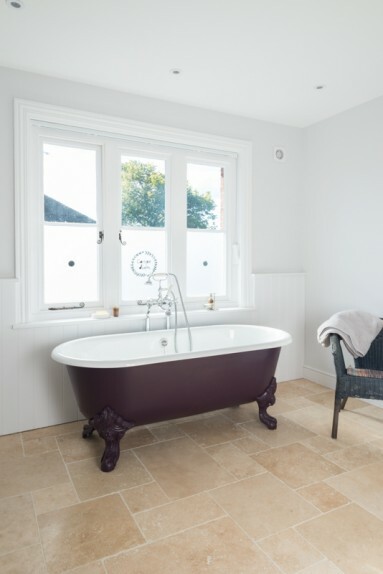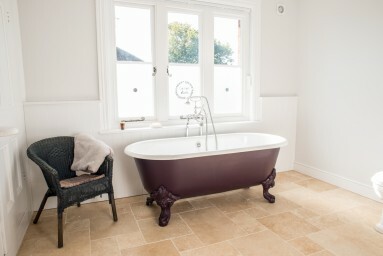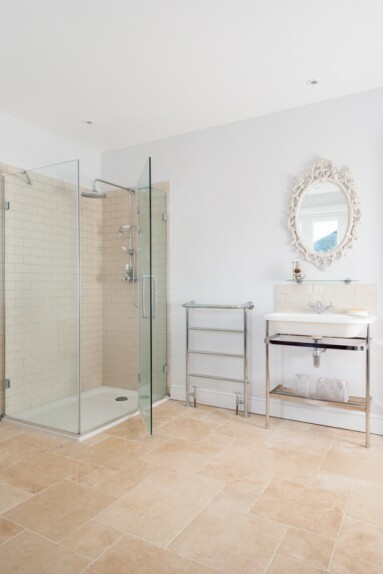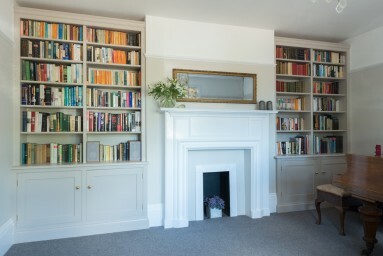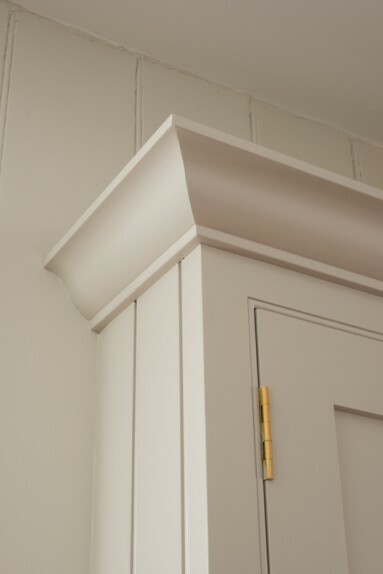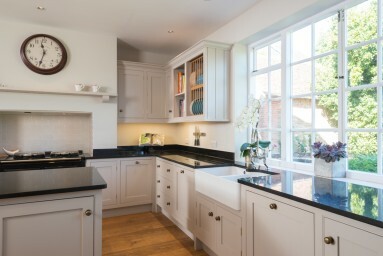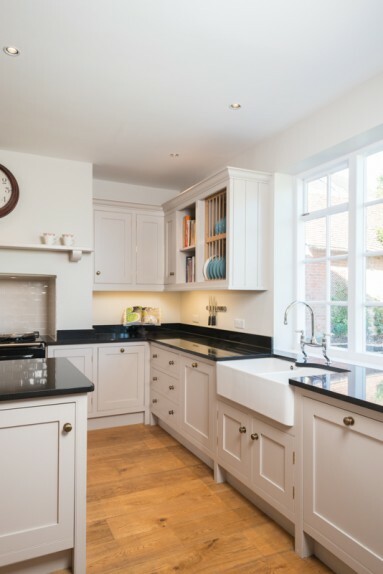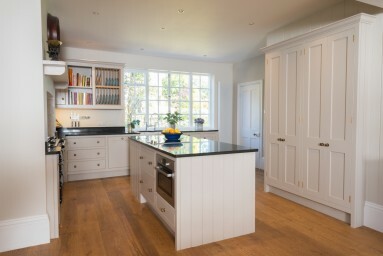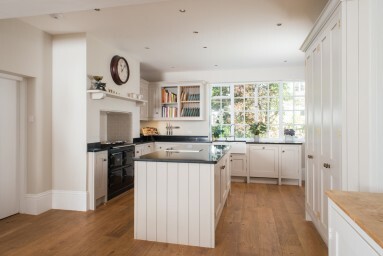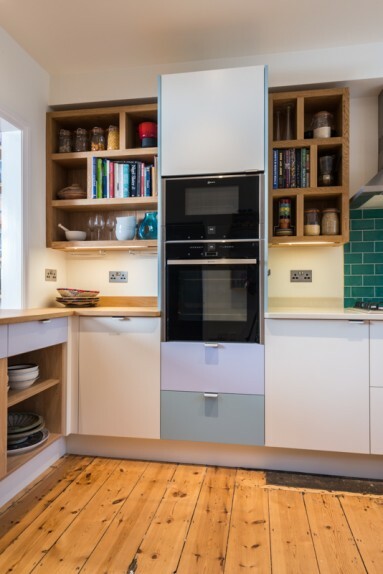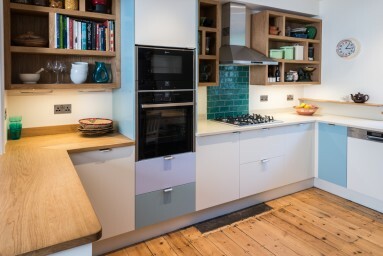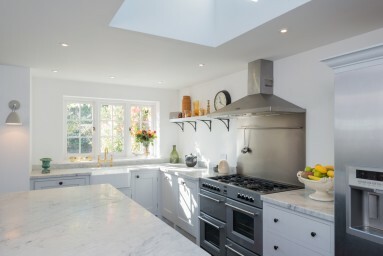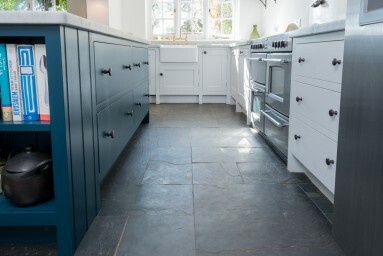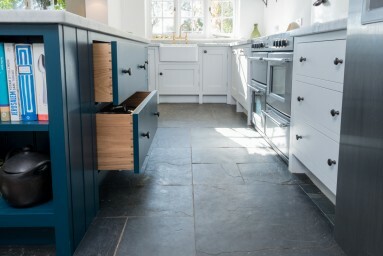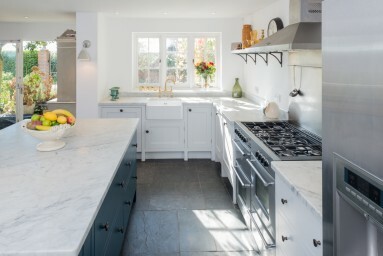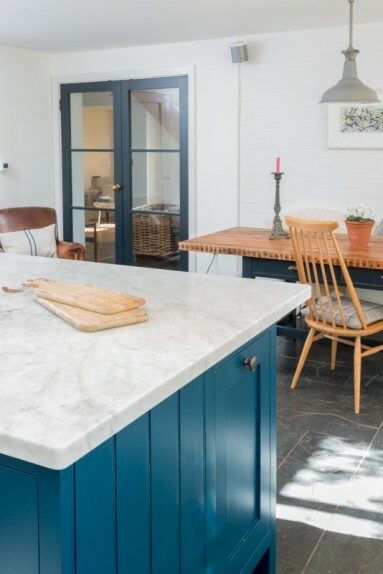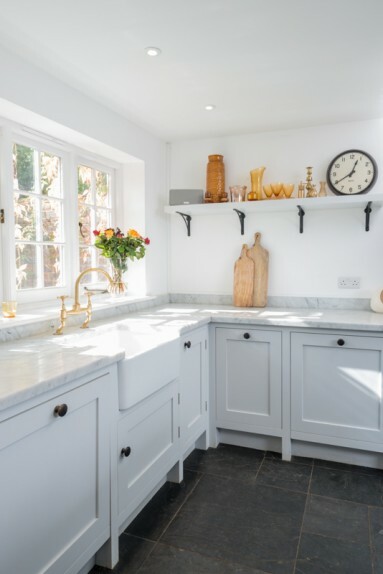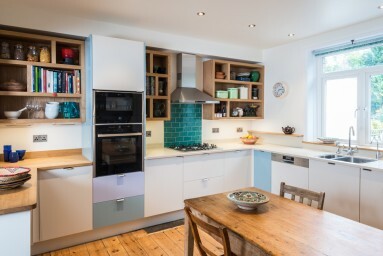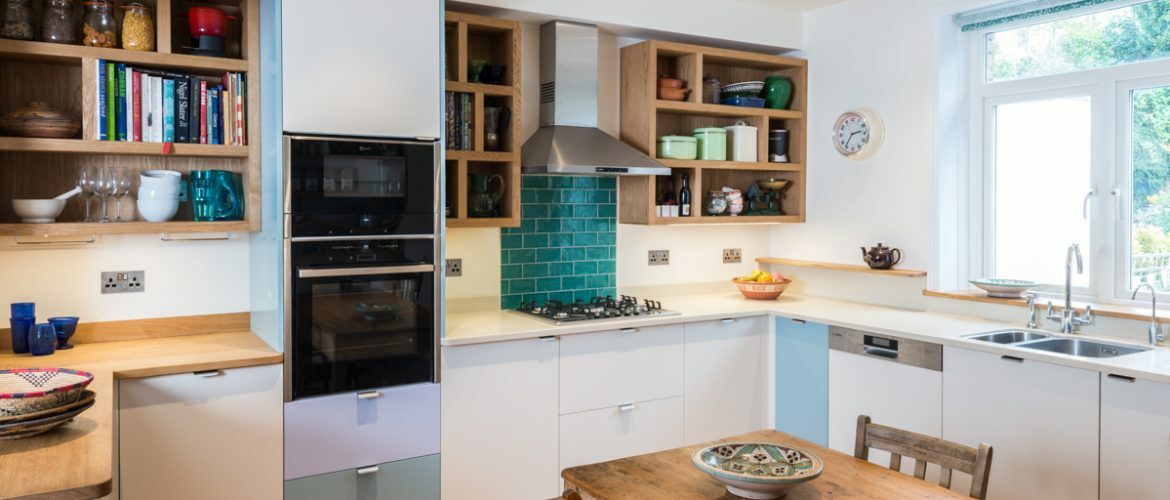
Shooting beautiful home interiors for Hartley Quinn Wilson
We’ve been commissioned by our studio’s neighbouring business, Hartley Quinn Wilson on several occassions. They’ve asked us to shoot some of their stunningly crafted kitchens, bathrooms and bespoke joinery and we’ve been more than happy to oblige, spending several hours shooting in some beautiful homes in the local area and usually being provided with tea and biscuits by the proud owners. When shooting interiors, it’s soft light we’re after. Whilst there’s always room for creativity, generally we don’t want harsh shadows or hot spots – it’s about balancing the light. The softest light is usually early morning and late afternoon, but since this can be a bit limiting to the schedules of everyone involved, not least of all your client’s brief, you’ll want to experiment with the options available to you.
Prepare your space before shooting. Use lamps, tweak blinds and turn on downlighters, or in some case, use strobes with large diffusers to balance your ambient light. You’ll need a wide angle lens to capture as much of the space as possible and you might find yourself squished tightly into the corner of a room as you try to fit it all in. Little tip: Check the home owner’s dog isn’t already behind you when you do this or the ensuing yelp may make you drop your camera – we nearly did!
Absolutely vital for the best results is using a tripod, preferably with a spirit level. Vertical lines, such as doors, walls and cabinet edges should remain parallel to the sides of your frame in most cases and if you’re rectifying this in photoshop afterwards, you’ll be losing data. The other advantage of using a tripod in a fixed position is you have the option to shoot multiple exposures of the same scene for easy blending in post-processing. In this way you can perfectly expose the scene outside the window, fill shadows under tables and get detail in even the brightest pool of sunshine on a worktop. Our previous blog, An Introduction to Layer Masks may be of use here.
Pick the right aperture for the job. If you’re shooting close and highlighting a particular detail or feature, you may want to shoot wide open and create background blur, but for wide-angle shots of entire rooms, especially those featuring varying focal planes, a narrow aperture will retain the most photographic detail. Bear in mind this means slower shutter speeds, so once again, the tripod is your friend. Finally, you may want to consider carrying the odd prop, be it a perfect coffee table book or two, a small vase of flowers or fruit bowl. Of course, many nice homes already have these things. Sometimes a small, well-positioned element can balance a photo and add a little real-world authenticity for the viewer.
So there you have it, some quick tips for shooting home interiors. Now let the home envy commence…..

